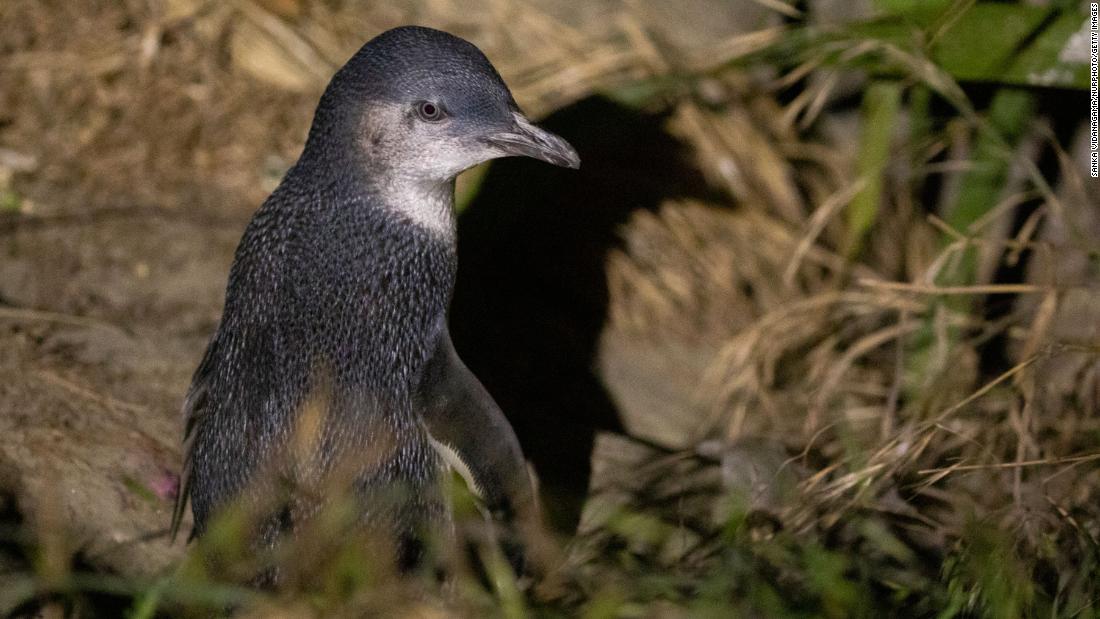
(CNN)The bodies of hundreds of little blue penguins have washed up on the beaches of New Zealand's northern coast in recent weeks, according to conservationists, who fear climate change is starving the birds to death.
The kororā, also known as little blue penguins, are native to New Zealand but are "at-risk" of declining, according to the country's Department of Conservation. They face predatory threats from dogs and ferrets but are also susceptible to road deaths and coastal developments.
Conservationists have been trying to find out why the penguins have been dying en masse since early May, when residents first spotted the dead birds on beaches.
Graeme Taylor, a principal science adviser who studies sea birds at the New Zealand Department of Conservation, said based on initial lab results malnutrition may be the cause of death of between 200 and 500 of the birds.
"The cause of the mortality event seems to be from failure to find sufficient food at sea and dying from starvation," Taylor told CNN.
A marine heatwave in the country's northern waters coupled with the natural La Niña weather cycle conditions have made it harder for the little blue penguins to find food, Taylor said.
The small, noisy birds with pale blue or indigo feathers typically eat anchovies and sardines, usually diving to depths of up to 30 meters (about 100 feet) to catch their prey. But rising water temperatures mean the small fish are moving to colder waters too deep for the birds to reach, Taylor said.
Initial findings from a Ministry of Primary Industries necropsy study showed the birds had lost their abdominal fat pad, so were in poor health before drifting to shore.
New Zealand experienced its warmest year on record in 2021, with annual temperatures hovering 0.5 to 1.2 degrees Celsius higher than normal, according to the National Institute of Water and Atmospheric Research.
Waters surrounding the country "have been pulsing up to 3 degrees Celsius recently," New Zealand Climate Change Research Institute adjunct senior research fellow Nathanael Melia told CNN affiliate Radio New Zealand in January.
La Niña is a regular oceanic and atmospheric phenomenon that refers to the periodic cooling of ocean temperatures in the central to east-central equatorial Pacific. The current phase of the cycle is bringing warmer water to northern New Zealand which makes it harder for little blue penguins to access food, according to Taylor.
Not a new problem, but getting worse
Dave Houston, an ecologist at the Department of Conservation, said this isn't the first time the birds have died in large numbers.
"Back in the 1970s, 80s and 90s [we had] up to 5,000 birds in these mass die-off events," Houston said. "Compared to past events, this is relatively small."
So far, penguin deaths have been reported in the country's North Island -- where cases have happened in the past -- and none have been flagged in the South Island.
While Houston said the phenomenon is part of a naturally occurring cycle, he admitted that climate change had exacerbated its negative effects.
"We know that [little blue penguins] can survive in warmer waters, but it has made life difficult for them," he said.
Bruce McKinley, president of Birds New Zealand, said climate change and pollution might make things worse in the future.
"The event itself is natural and has happened before, it could be changing in the pattern or the intensity due to warming of oceans because of human-induced climate change. But we just don't know," McKinley said.
June 16, 2022 at 01:51PM
https://www.cnn.com/2022/06/16/world/new-zealand-dead-little-blue-penguins-climate-intl-hnk-scn/index.html
Dead little blue penguins keep washing ashore in New Zealand. Experts say climate change may be to blame - CNN
https://news.google.com/search?q=little&hl=en-US&gl=US&ceid=US:en

No comments:
Post a Comment